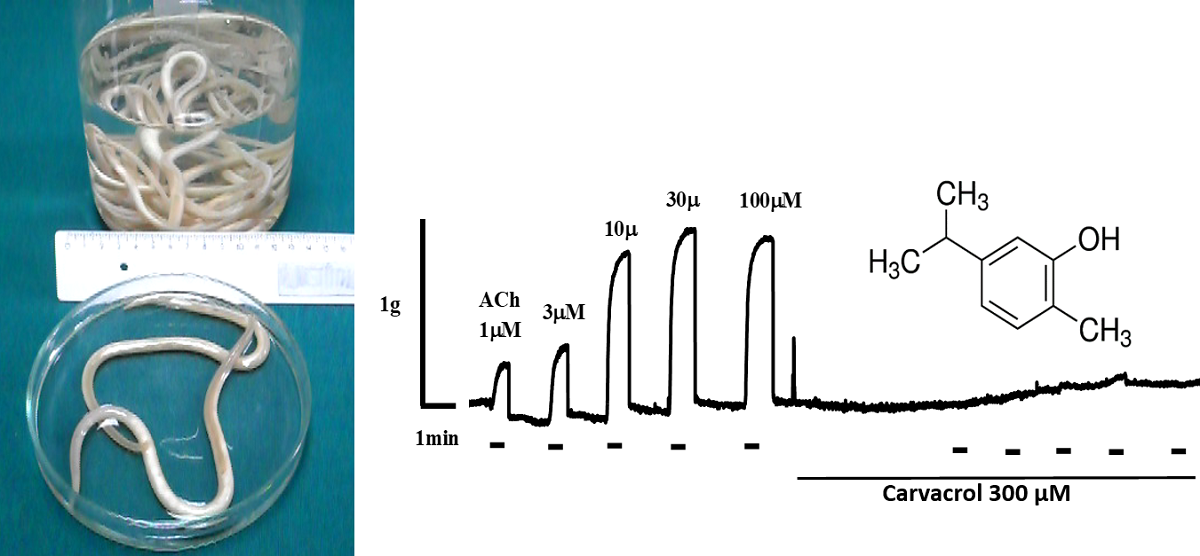Parascaris sp. is the only ascarid parasitic nematode in equids and one of the most threatening infectious organisms in horses. Only a limited number of compounds are available for treatment of horse helminthiasis and Parascaris sp. worms have developed resistance to the three major anthelmintic families. In order to overcome the appearance of resistance, there is an urgent need for new therapeutic strategies. The active ingredients of herbal essential oils are potentially effective antiparasitic drugs. Carvacrol is one of the principal chemicals of essential oil from Origanum, Thymus, Coridothymus, Thymbra, Satureja and Lippia herbs. However, the antiparasitic mode of action of carvacrol is poorly understood so far. Here, the objective of the work was to characterize the activity of carvacrol on Parascaris sp. nicotinic acetylcholine receptors (nAChRs) function both in vivo with the use of worm neuro-muscular flap preparations and in vitro with two-electrode voltage-clamp electrophysiology on nAChRs expressed in Xenopus oocytes. We have developed a neuromuscular contraction assay on Parascaris body flaps and obtained acetylcholine concentration-dependent contraction responses. Strikingly, we observed that 300 µM carvacrol fully and irreversibly abolished Parascaris sp. muscle contractions elicited by acetylcholine. Conversely, carvacrol antagonized acetylcholine-induced currents from both the nicotine-sensitive AChR and the morantel-sensitive AChR subtypes. Thus, we show for the first time that the body muscle flap preparation is a tractable approach to investigate the pharmacology of Parascaris sp. neuro-muscular system. Our results suggest an intriguing mode of action for carvacrol being a potent antagonist of muscle nAChRs of Parascaris sp. worms which may account for its antiparasitic potency.

